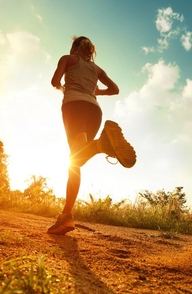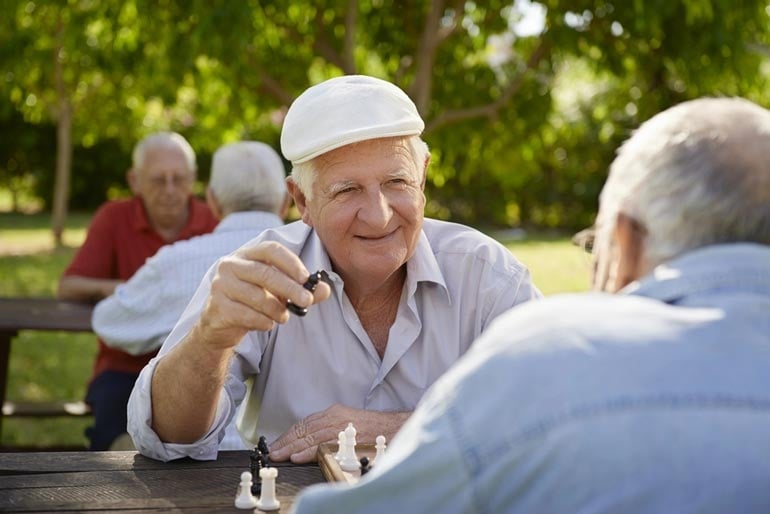Start 14-Day Trial Subscription
*No credit card required

Aging Gracefully With Incontinence: Lifestyle Tips For 2024
These essential lifestyle tips for seniors cover health and wellness management, social engagement, financial security and home modifications. Learn how to enhance seniors' quality of life and independence.
As the population ages, addressing seniors' unique needs and concerns becomes increasingly important. From health and wellness management to social engagement and financial security, many initiatives can help improve seniors' quality of life.
Unfortunately, aging can also bring various challenges, such as physical and mental health issues, limited mobility and independence, and financial constraints. Society must recognize and address these challenges to support seniors in living healthy, fulfilling, and independent lives.
Here are five lifestyle tips that can make a meaningful difference in the lives of seniors.
1. Health and wellness management
Good health and wellness are crucial for seniors, who are more likely to experience age-related health issues. One common health challenge many seniors face is incontinence, or the inability to control the bladder or bowel.
Incontinence can be caused by various factors, including weakness in the muscles that control the bladder and bowel, certain medications, and underlying health conditions such as diabetes or multiple sclerosis. Incontinence can be a source of embarrassment and social isolation for seniors, as well as a physical inconvenience and potential health risk.
To manage incontinence and maintain good hygiene in seniors, initiatives to provide seniors with free or affordable bed pads should be put in place.
Different diapers are available, including disposable and reusable options, to meet the needs and preferences of seniors. In addition to providing practical support for incontinence, diapers can also help seniors feel more confident and comfortable, allowing them to participate in activities and maintain their independence.
While diapers can be an effective solution for incontinence, seniors should also seek medical advice and treatment for the underlying cause of their incontinence. This may involve lifestyle changes, such as increasing fluid intake or exercise, or medical treatment, such as medication or surgery.
2. Social engagement
Social isolation and loneliness can have a negative impact on the mental and physical health of seniors. Initiatives that promote social engagement and connection can help seniors to stay engaged, active, and connected to their communities. This can include volunteering, joining social groups or clubs, or participating in community events.
Volunteering is an excellent way for seniors to give back to their community and connect with others. Many organizations welcome seniors as volunteers and offer various opportunities to suit different interests and abilities. Volunteering can provide seniors with a sense of purpose, accomplishment, and social connection, as well as a chance to learn new skills and make a positive impact.
Joining social groups or clubs is another way for seniors to stay connected and engaged. These groups may be centered around shared interests, hobbies, or activities and can give seniors a sense of community and belonging. Many communities offer a variety of social groups for seniors, such as book clubs, bridge groups, or exercise classes. These groups allow seniors to make new friends, share experiences, and stay active and engaged.
3. Financial security
Many seniors face financial challenges, including limited income and rising costs for healthcare and other necessities. Initiatives that help seniors to manage their finances and secure their financial future can greatly improve their quality of life. This can include financial education, counseling, and resources and programs that provide financial assistance or support for seniors.
Financial education and counseling can help seniors to understand their financial situation, set goals, and make informed financial decisions. This may include learning about budgeting, saving, investing, and managing debt. Many organizations offer seniors financial education and counseling services, such as the National Council on Aging (NCOA) or the Consumer Financial Protection Bureau (CFPB).
4. Training for Bladder Control
Your family doctor may suggest that your elderly parents or grandparents try bladder control exercises or other methods to help them regain independence. Learning to properly train one's bladder can change how urine is stored and released. Here are some top methods for doing this:
Flex Your Pelvic Muscles: Kegel exercises
Strengthening the muscles that control urine production is possible with this workout. Additionally, stress and urge incontinence can be reduced or eliminated with these easy exercises.
Doctors often instruct parents to clench these muscles for a set amount of time, hold them, and then relax them. After that, do it again and again. Your parents will probably say this many times a day. The doctor will also give specific directions for this exercise.
Biofeedback system
One way in which biofeedback helps the elderly is by making them more attuned to their physiological cues. The muscles that govern the urethra and bladder could so be less challenging. Furthermore, biofeedback can be used to instruct in the proper use of pelvic muscles.
Scheduled Polling
Any elderly person lacking bladder control may benefit from this method. By tracking when they pee and when they leak, they may figure out when it's best to go to the restroom before accidents happen. When coupled with biofeedback and exercises to strengthen the pelvic muscles, this method has shown promise in reducing frequent urination and overflow incontinence.
5. Housing and home modification
Housing and home modification are important considerations for seniors, who may require special accommodations to continue living safely and comfortably in their homes. Initiatives that provide resources and support for home modification can help seniors to stay in their homes longer and maintain their independence. This can include financial assistance for home modifications, education, and resources for seniors to make informed decisions about their housing options.
Financial assistance for home modification can be an essential resource for seniors who need to make necessary home changes to accommodate their needs or disabilities. This may include improvements such as installing ramps or handrails, widening doorways, or adapting bathrooms for wheelchair use.
The Home Modification Loan Program (HMLP), offered by the Department of Housing and Urban Development (HUD), is one example of a program that helps seniors make necessary home modifications. In addition to financial assistance, other resources, such as grants or tax credits, may be available to help seniors pay for home modifications.
Conclusion
Many initiatives can help to improve the quality of life for seniors. From health and wellness management to social engagement and financial security, these initiatives can provide seniors with the support and resources to live happy and healthy lives. Focusing on these critical areas, you can help seniors age with dignity and independence and ensure they have the support and resources they need to thrive.



